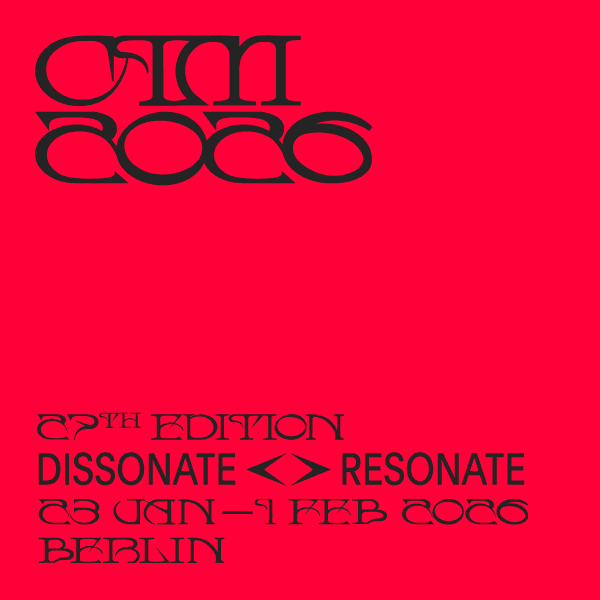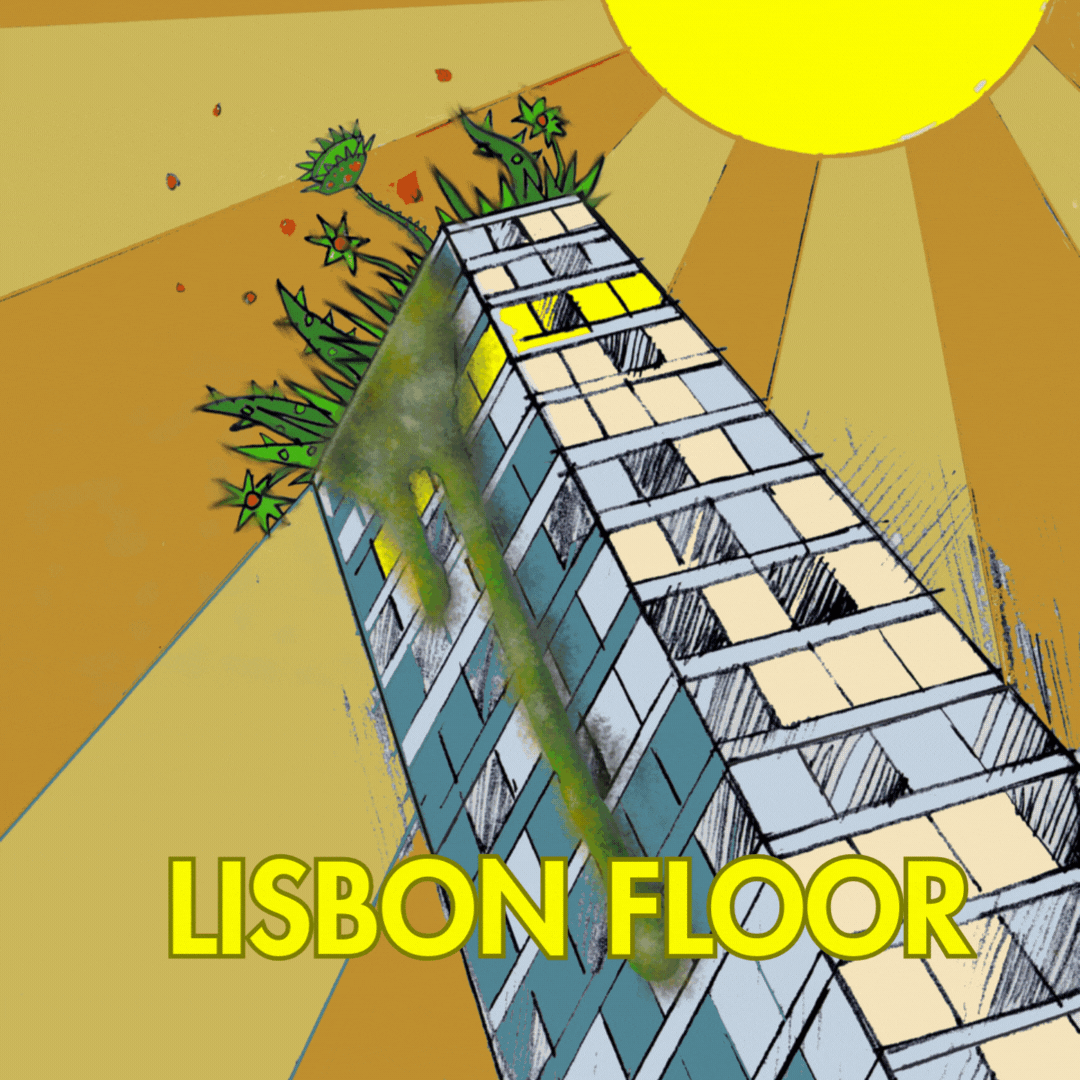
The anti-heroes take the stage – and it suits Spot
There’s something about Spot Festival that continues to haunt me. It’s not just the throbbing bass in your gut or the endless marathon between venues – the musical experience is never linear, but rhizomatic: unpredictable, without a center, always in motion. And then there’s that feeling of witnessing something unfinished, something potent. For one weekend, Aarhus is transformed into a sonic lab where the voices of the future are tested in the acoustics of the present. Here are six insights I took with me from Spot 2025.
1. Bowling alleys and death drive: when the noise spills off the record
Nausia – a Copenhagen-based quintet, and Latin for »noise« – created a mesmerizing groove with two saxophones at the helm, swirling tones, howls and minor-key fanfares into each other. The concert took place in Aarhus Bowling Alley (touché!) and was a 30-minute journey of dissonance, collapse and repetition. Isak Schiødt, the taller of the two saxophonists, wore bowling shoes. Every concert should be in a bowling alley. Sound art and experimental jazz can be deeply entertaining and deserve broader audiences.
Slim0 don’t build songs – they resurrect them like dead creatures in a ritualistic séance
There was something theatrical and death-driven about Slim0. With lipstick smeared across their faces, the trio played as if from the grave – like a Lady in red chain-smoking in a cemetery at 3am. With a guitar deeper than grunge, the music pounded on with doom-laden riffs, delivered like deliberate, almost choreographed effects. It wasn’t chaos – but a controlled explosion somewhere between sludge, black metal and garage. Slim0 don’t build songs – they resurrect them like dead creatures in a ritualistic séance. And the audience listened – with their bodies, and with their alienated selves, sunk into the soft seats of Musikhuset.

2. Dreamlike esperanto and the politics of slowing down
Spot Festival 2025 unfolded in the shadow of a world in turmoil. Sound was used as a quiet, yet persistent form of political resistance. Not loud or overt – but tangible, if you listened closely. Ida Duelund’s bass didn’t erupt with frenetic energy, as one might expect. Instead, a jazz-inflected breeze settled over A-Huset at Godsbanen, as she sang songs from her new album Sibo – in a made-up language that resembled some sort of dreamlike Esperanto. In an era where everything strives to be bigger, louder, faster, moments like these remind us that the most radical act can be to insist on slowness and presence.

A concert that insisted life’s rough patches shouldn’t be smoothed over – but sung aloud
Many artists at Spot’s 24 stages turned inward, and vulnerability was everywhere – Kayak, Laura Ziani, Yndling and Elliot all offered up fragile farewells and exposed nerves. With classic, dark-eyed indie rock attitude, Dork (Lærke Simoni) sang: »I’m not a good person«.
Sebastian Wegener (formerly of Joyce) wobbled at first. In his new solo project, he balances emotional rawness – shame, rejection, longing – with the theatrical. But once the male confessions and tender crooning were joined by folky fiddle and generous saxophone, it became a concert that insisted life’s rough patches shouldn’t be smoothed over – but sung aloud.
There were truly many anti-heroes at Spot this year. And they were feeling their way forward.
Spot 2025 showed that young artists refuse to be defined – not by critics, algorithms, or marketing teams
3. Genres are for archaeologists – art seeks new forms
It may sound like a cliché, but rarely has it been clearer that what we used to call »genre« today functions more like an archaeological term – something to be unearthed, not used. What do you even call Matthew Grouse’s A Very Exciting Product Launch? A piece for five musicians, interactive video, and electronics, where the audience – or at least the illusion of it – seemingly controlled the oboe’s actions. New music can easily draw from the aesthetics and mechanisms of gaming.
Spot 2025 showed that young artists refuse to be defined – not by critics, algorithms, or marketing teams. The composers want to be on stage. They want to be unpredictable, and in their uncertainty, we find truth.
At Spot, you can feel who’s ready – and who’s still searching for the spotlight’s warmth
Composer Niels Rønsholdt – who discovered a longing to be on stage many years ago – stood beside vocalist Henriette Sennenvaldt and in front of Aarhus Jazz Orchestra, singing about loneliness and the air they breathe as they plummet toward the sun. Excellent Place to Start hovered like a series of slow ballads in dissolved time and tone, with brass unfolding like an edgeless carpet – a hazy filter laid over the words, beneath which something fragile shimmered faintly. Words and tones reached for each other with a vulnerability that felt both intentional and brave. Skewed music – in the simplest way. At Spot, there’s room for the genreless and introspective. But why was the sound so muddy – here, of all places, in the musicians’ own backyard?

4. Classical music steps forward – but does it fully take shape?
Classical musicians are no longer mere guests at Spot. They’ve been here since 2016, but it’s time they took more ownership. This year’s short work presentations worked well, and we could fully immerse ourselves in Magnus Plejdrup’s musical exploration of anxiety. A trumpet sounded tentative, as if rehearsing its emergence into the light – until the full Aarhus Chamber Orchestra embraced it with a near-provocative cheerful waltz.

There were intense collective immersions and sonic explorations of repetition and friction from Damkapellet. Fredrik Zeuthen’s forest- and nature-inspired Waldeinsamkeit was almost a 1:1 translation of soundscape to composition. But why did the exciting composer Mette Nielsen present a piece that’s over ten years old? Spot cries out for the newest of the new.
5. You can’t hide on stage – and that’s beautiful
At Spot, you can feel who’s ready – and who’s still searching for the spotlight’s warmth.
»Just because it’s a day party we can be in a night mode.« Karina Kaleda, lead singer of Polite, knew it sounded a little awkward. It’s merciless to be booked – and emotionally exposed – at 1pm.
Some are born for the stage. Vilma Crow entered in studded boots and a voice that sliced through the noise like a rusty knife through velvet. Many would envy that kind of confidence. Spot has its share of nervous glances, shaky tempos, and unsure front figures – showing that the dream of Spot may have come too fast, or just too early in the day.
But this is also where the magic sometimes happens. In the uneven performances, in the act of finding your voice and expression in front of a curious audience – even when singing about losing yourself. Fortunately, it wasn’t all melancholy and self-reflection: Norway’s Drongo invited us to join a hand-played techno session, bringing bodies and dancefloors into the conversation.
6. The courage to listen – and to make room for the unfinished
Spot is not a destination, but a state of mind. A festival that never finishes, always groping, experimenting – and that’s precisely what gives it value. Where other festivals bet on the sure thing, Spot dares to present the unknown – what may never become big. That takes courage – both from organizers and the audience.
On a screen in a small room in FO-byen, Greta Thunberg sang »Never Gonna Give You Up«
Spot 2025 left me tired, overstimulated, emotionally overexposed – but also curious and hopeful. In a world where culture often becomes content, the festival reminds us that art can still carve out spaces for community, divergence, and exploration. It may not be spectacular – but it’s important.
One of the many panel discussions at Spot posed the question: How can music still be an agent of change? On a screen in a small room in FO-byen, Greta Thunberg sang »Never Gonna Give You Up«. Should artists today be activists with slogans on their T-shirts, showing what they stand for? Or is there space for sensitivity and time to grow as artists? The world – and the PR machinery – has never moved faster. Even though artists have become braver, it still takes time to find your voice. And perhaps the most courageous thing we can do – is to simply listen to the world.
Spot Festival, Aarhus, May 2–3
English translation: Andreo Michaelo Mielczarek. Proofreading: Seb Doubinsky

